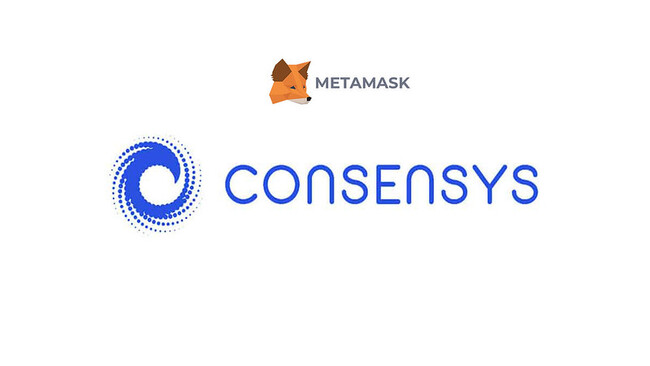Highlights:
- SEC alleges Consenys operated as an unregistered broker via MetaMask Swaps and Staking, collecting over $250M.
- SEC targets Lido and Rocket Pool for selling unregistered staking securities.
- Consensys challenges SEC’s authority over MetaMask and plans legal action in Texas for clarity.
On Friday, the United States Securities and Exchange Commission (SEC) filed a lawsuit against MetaMask’s parent company, Consensys, in the US District Court for the Eastern District of New York. The SEC alleges that Consensys has been operating as an unregistered broker and engaging in the unregistered offer and sale of securities through its MetaMask platform. The complaint focuses on the MetaMask Swaps and MetaMask Staking features.
SEC: The Lido and Rocket Pool staking programs are each offered and sold as investment contracts and, therefore, securities. Investors make an investment of ETH in a common enterprise with a reasonable expectation of profits from the managerial efforts. https://t.co/AYN7SupjGQ pic.twitter.com/HzrJYxNrVE
— Wu Blockchain (@WuBlockchain) June 29, 2024
In its 59-page lawsuit, the SEC claims that since October 2020, the company has acted as an unregistered broker of crypto asset securities via its MetaMask Swaps service, which allows users to exchange various cryptocurrencies and tokens. Moreover, since January 2023, Consensys has been offering unregistered securities through its crypto asset staking programs via the MetaMask Staking service.
The regulatory body said by operating these services without proper registration, the company has deprived investors of “crucial protections” afforded by federal securities laws. According to the SEC, the company collected over $250 million in fees through its unregistered broker activities. The agency wants to stop Consensys permanently, impose fines, and seek other fair remedies for breaking securities laws.
SEC Lawsuit Targets Lido and Rocket Pool’s Staking Services
The SEC suit also targeted Ethereum staking services Rocket Pool (RPL) and Lido (LDO), the third-party platforms MetaMask uses to power its staking feature. The agency said Consensys sold thousands of unregistered securities through staking program providers. These providers issued liquid staking tokens—stETH and rETH—in exchange for staked assets. Investors give ETH to Lido and Rocket Pool, who pool and stake it on the blockchain to earn returns that investors couldn’t achieve alone, according to the agency.
The SEC said:
“Upon receipt of an investor’s ETH, Lido and Rocket Pool issue the investor a new crypto asset in return—stETH or rETH, respectively—representing the investor’s pro-rata interest in the staking pool and its rewards.”
Lido and Rocket Pool are sold and offered as investment contracts, so they are considered securities, according to the agency. Moreover, the commission also claimed that most of the coins offered on Metamask were securities. This included Luna (LUNA), Chiliz (CHZ), Polygon (MATIC), the Sandbox (SAND), and Mana (MANA). These tokens have previously been classified as securities in past enforcement actions.
Consensys Sued SEC Over Ether Regulation
In April, Consensys sued the SEC after receiving a Wells notice from the regulatory body, challenging potential attempts to classify ETH and related staking services as securities. On June 19, Consensys announced that the SEC had concluded its probe into Ethereum. The closure of the investigation means Ether will not be classified as a security.
ETHEREUM SURVIVES THE SEC.
Today we’re happy to announce a major win for Ethereum developers, technology providers, and industry participants: the Enforcement Division of the SEC has notified us that it is closing its investigation into Ethereum 2.0.
This means that the SEC…
— Consensys (@Consensys) June 19, 2024
Despite closing the investigation, the SEC warned that this decision does not absolve ETH of potential issues. Consensys anticipated the SEC’s action on Friday.
Consensys Responds To SEC Enforcement Actions
In a statement, Consensys argued that the SEC lacks the authority to regulate software interfaces such as MetaMask. The company said it would continue to pursue its case in Texas to seek clarity on these matters.
The company stated:
“The SEC has been pursuing an anti-crypto agenda led by ad hoc enforcement action. This is just the latest example of its regulatory overreach — a transparent attempt to redefine well-established legal standards and expand the SEC’s jurisdiction via lawsuit.”
Consensys fully expected the SEC to follow through on its threat to claim our MetaMask software interface must register as a securities broker. The SEC has been pursuing an anti-crypto agenda led by ad hoc enforcement action.
This is just the latest example of its regulatory…
— Consensys (@Consensys) June 28, 2024
Read More
- Vietnam and UAE Lead Countries in Terms of Crypto Adoption
- DePIN Crypto Projects to Watch In 2024 – Top 10 DePIN Coins
- Best Metaverse Coins to Invest – Next Metaverse Coins






